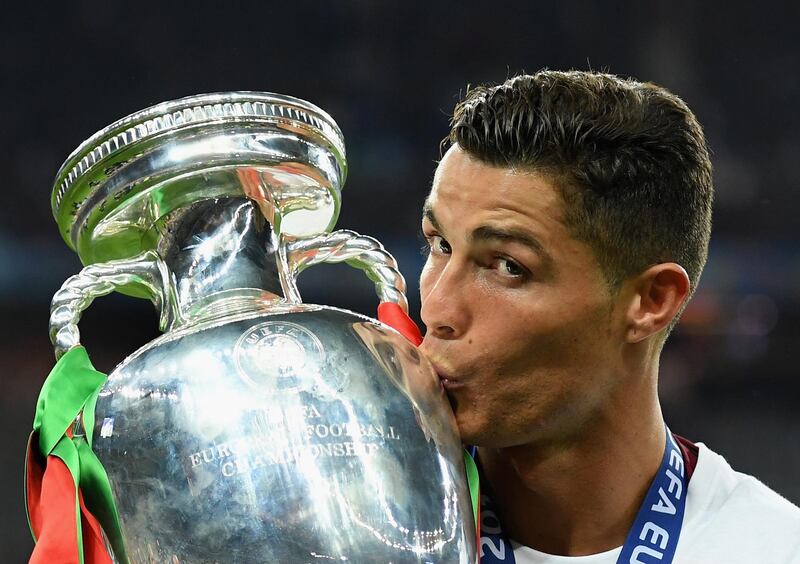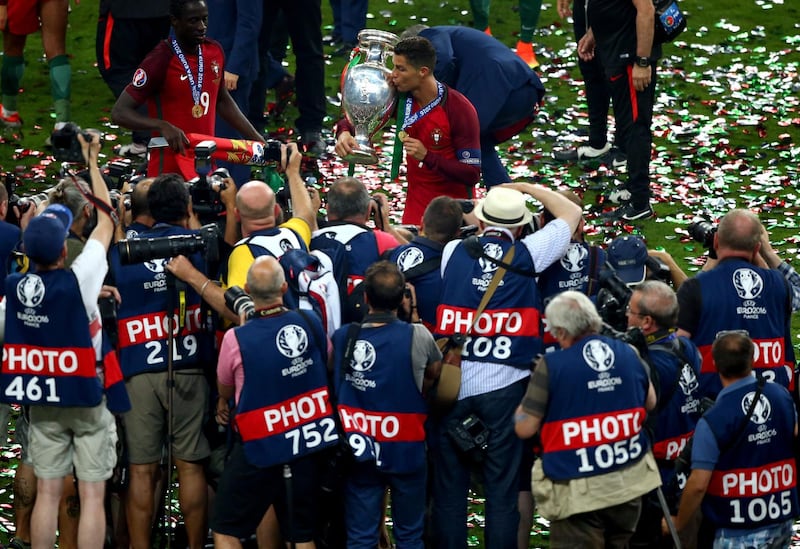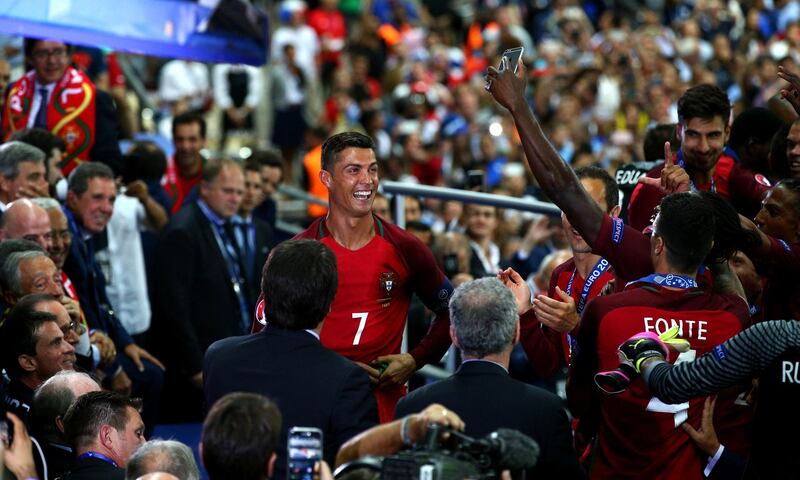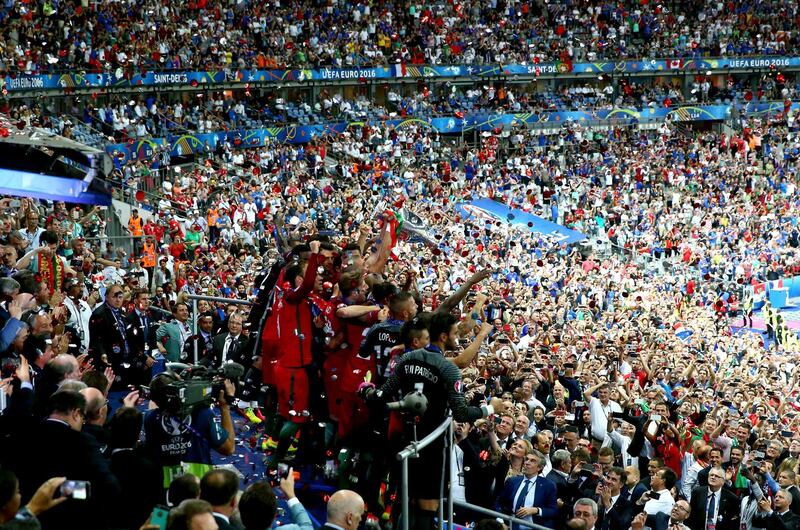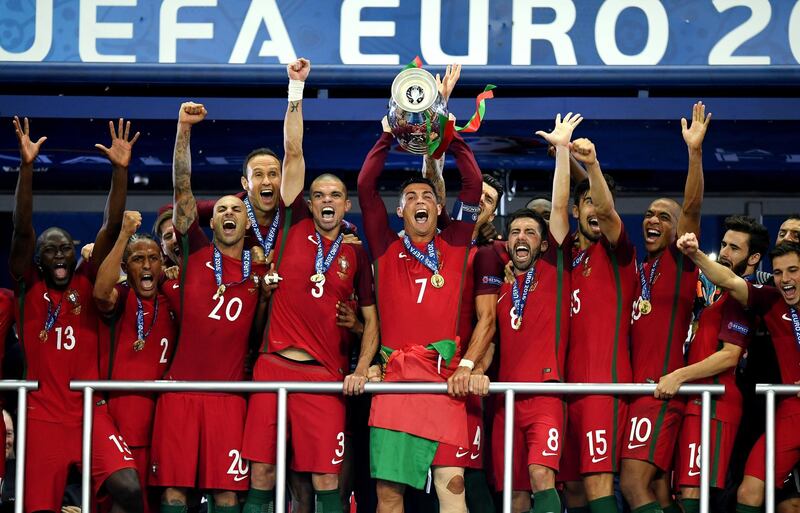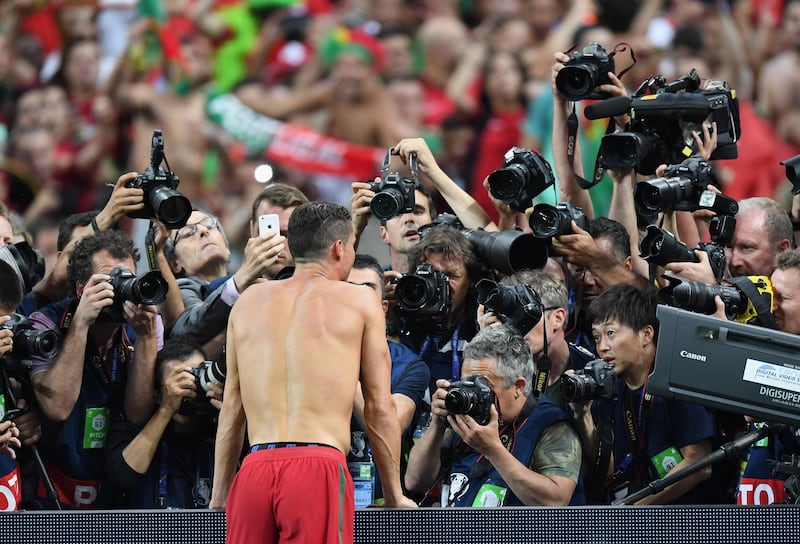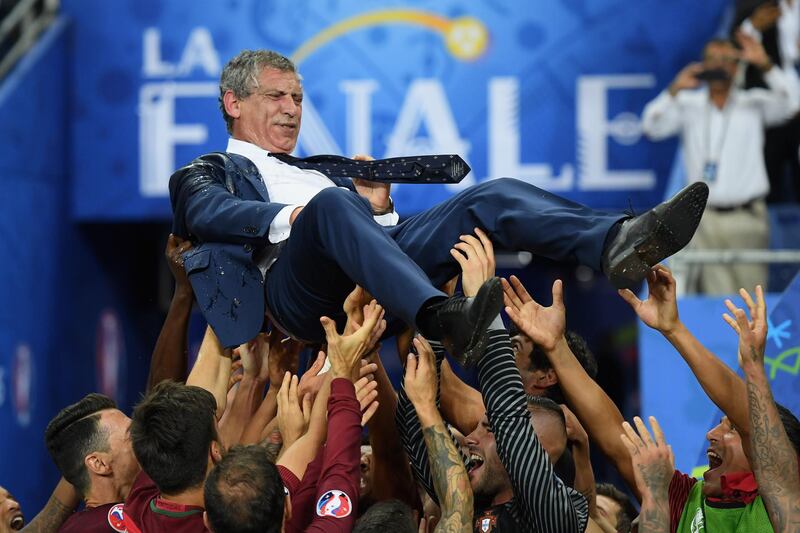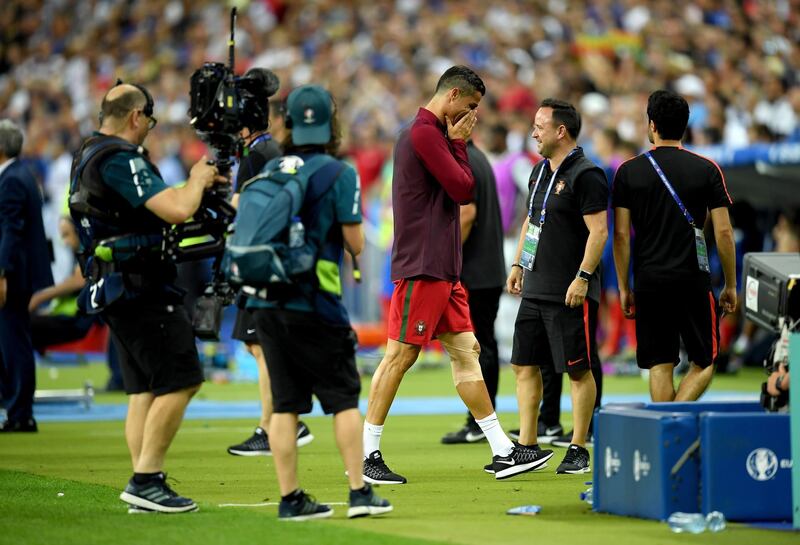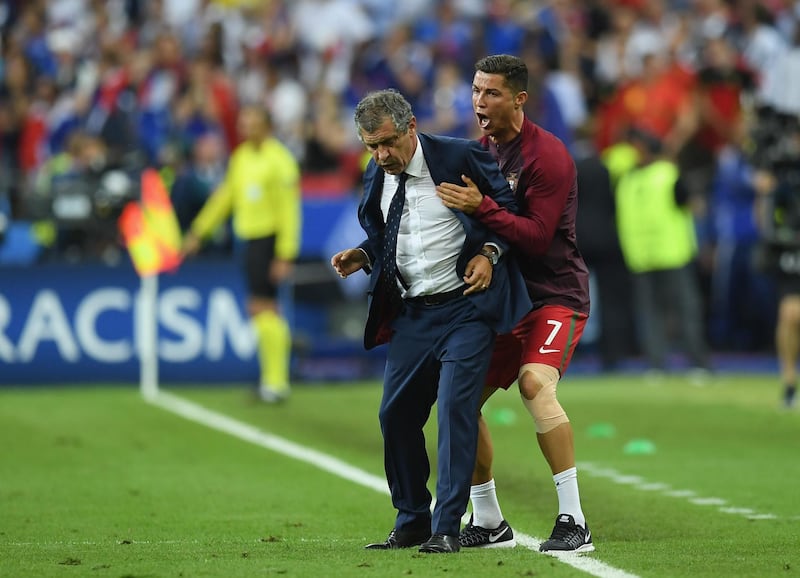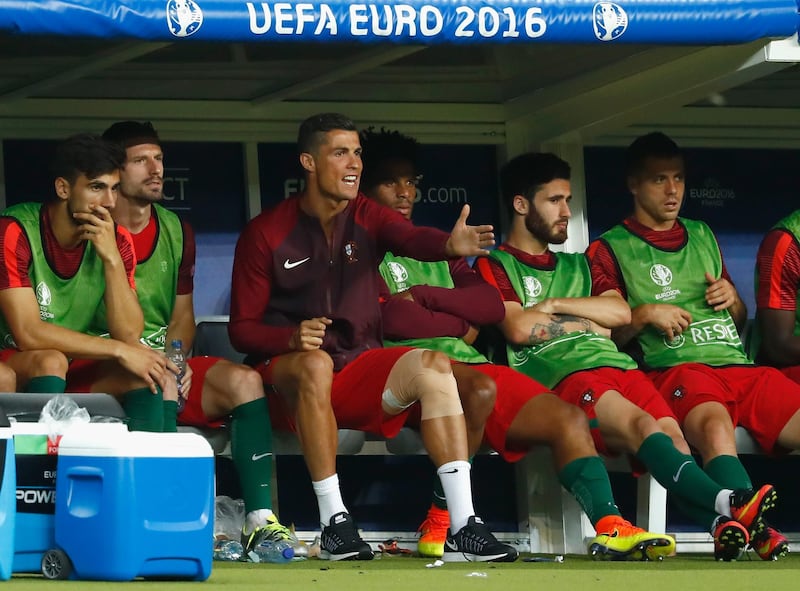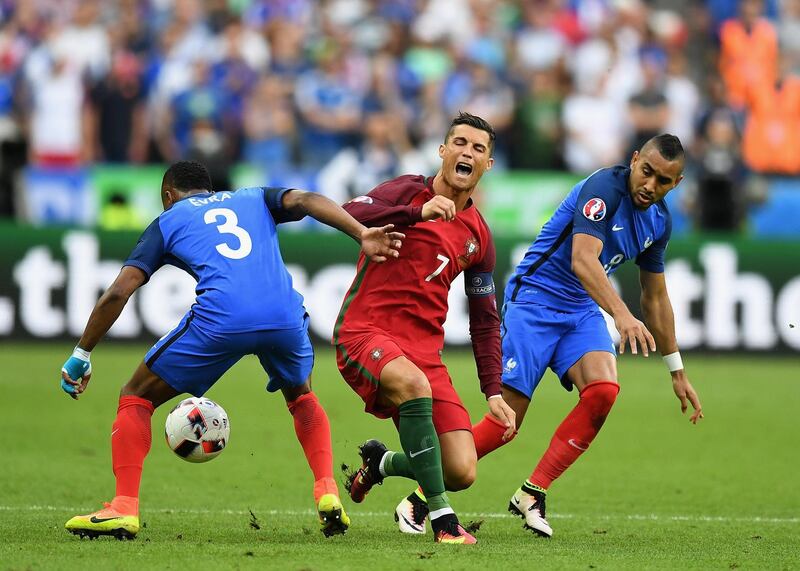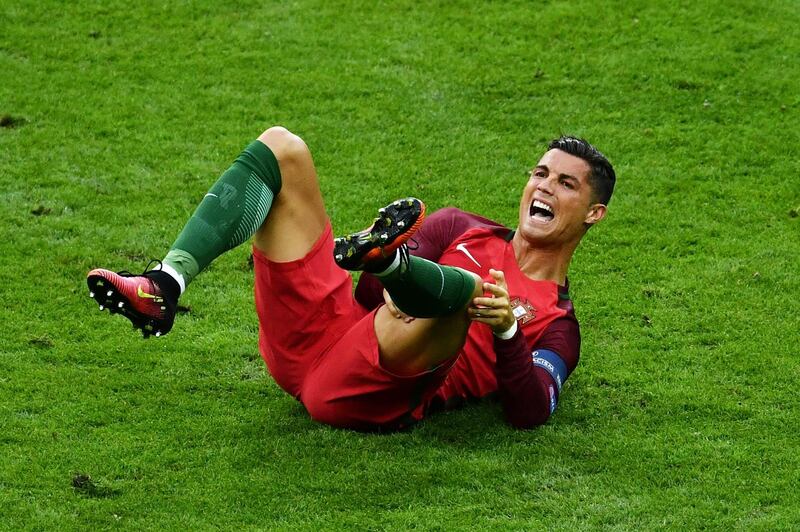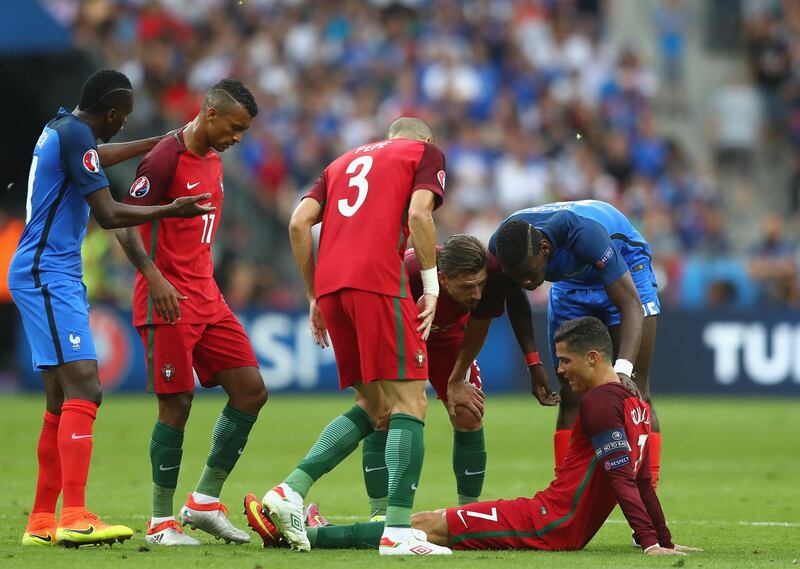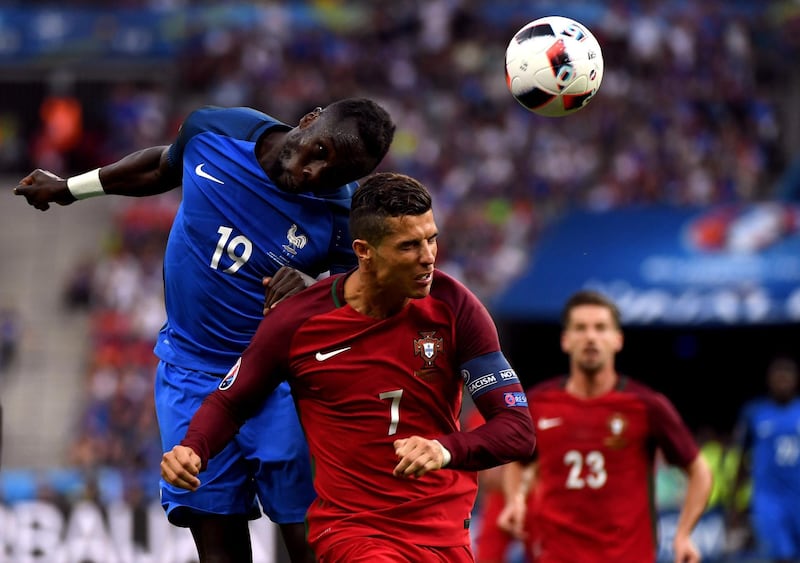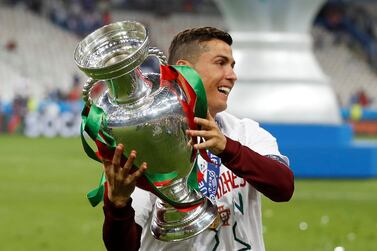From well away from mainland Europe, the captain of the reigning Euro champions eagerly followed the fate of one his most cherished titles on Tuesday.
Cristiano Ronaldo is seeing out the coronavirus crisis on his native Madeira, still in the gym for several hours a day, even more focussed than usual on defying the physical effects of age.
Ronaldo, skipper of Portugal’s surprise winners of Euro 2016, was not surprised that the first major event officially erased from this year's interrupted football calendar is Euro 2020.
Uefa, organisers of the European Championships, had made it a clear priority to complete, if possible, the disrupted 2019-20 club season.
The period from June 12, previously filled by the Euros, makes an obvious space for league programmes to shunt into after the Covid-19 pause, and perhaps for those valued Uefa properties, the Champions League and Europa League as well.
The plan is to stage a Euro 2021 instead, on the same format, next June and July. While, there is common sense in the idea, there will be regret. International tournaments engage the broader public in a way club football cannot.
Players are roused by patriotic instincts, too, and many of the best plan their careers to peak around the two-year cycle of World Cups and continental tournaments.
The cast list for Euro 2021 will look significantly different from Euro 2020. Ronaldo will be 36, for a start. It is never wise to forecast an expiry date on his exceptional athleticism, still less on his drive to succeed, but by June 2021, CR7 might look in need of rest if this club season ends up merging without much gap into the next one.
In the last two years, Ronaldo has tried to ease his workload for his country. He missed the last Nations League qualifiers, before returning to captain the Portuguese to triumph in that event, part of squad that looked back as much as it looked forward: Its two senior centre-halves, Pepe and Jose Fonte, are now 37 and 36.
Portugal had been looking to Euro 2020 with optimism, though even if they are drawn in the same group as France and Germany.
They are better resourced than they were four years ago when Ronaldo helped guide a stubborn but not overly decorative side to the final, and then watched his team-mates beat France in extra-time with their captain injured on the sidelines.
They had until this month anticipated defending that title with pizazz. Individuals are in good form.
Ronaldo has 16 goals in his last 12 Serie A matches for Juventus; Bruno Fernandes is the star of Manchester United’s recent uplift; Joao Felix is settling in at Atletico Madrid, though in his case, at 20-years-old, another 12 months spent maturing should yield a more developed footballer for Portugal.
Likewise, the many precocious talents elsewhere who might have seen this June as a stepping stone.
Next June it will be more than that. Jadon Sancho, of Borussia Dortmund and England, turns 20 next week. If his progress in his 21st year is as dazzling as it has been on the journey from a 17-year-old Bundesliga debutant to the German top-flight’s most prolific provider of goals, he will have grown from being a wild card selection for England to a leading light.
Ahead of a postponed Euros, England would hope to have a fully fit Harry Kane, rather than the recovering version they are currently monitoring as he comes back from surgery.
Belgium would welcome an Eden Hazard in better shape, 14 months on, than he is now, the Real Madrid player coming back tentatively from a series of ankle problems.
Nor will some in the Netherlands regard a delayed Euros too gloomily, given that striker Memphis Depay’s readiness for June was in doubt after he tore his cruciate ligament.
But for the likes of Luka Modric, the 2018 Ballon D’Or winner, a further wait for what would be his fourth European championship sounds like a clock ticking ominously.
Modric will be 35 in September, is rationing his fixtures more than he once did, and leads a Croatia where some of the heroes from the last World Cup, where they reached the final, have steadily stepped away from the international stage.
There may be a resigned sigh, too, at Uefa’s decision, from the likes of Giorgio Chiellini, 36 in August and one of a clutch of Italy players who were impatient to make Euro 2020 their amends for the Azzurri missing out entirely on the Russia World Cup.
“If we play in 2021, Chiellini will have even more experience,” declared Roberto Mancini with bullish confidence. “We could have won it this year, and we can next year.”
